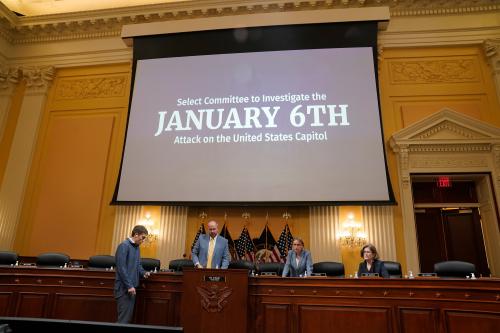The Obama administration and its critics are locked in a standoff over whether to try Khalid Sheikh Mohammed and the other alleged Sept. 11 conspirators in a military commission or in federal court. Both sides are busily ignoring the obvious solution: Don’t bother trying them at all.
Mohammed has already spent more than seven years in military detention. Both the Obama administration and the Republicans who object to trying him in federal court accept the legitimacy of such detention as a traditional incident of war for those in the command structure of al-Qaeda, and perhaps for associated forces as well. In general outline, so do the courts. Given these facts, the politically draining fight about civilian vs. military trials is not worth the costs. It also distracts from more important questions in the legal war against terrorism.
The question of trial forum is important in certain cases. Before the Obama administration embraced the propriety of military detention, it was important for Mohammed too. If one intends to hold people only pursuant to criminal charges, as some in the Obama administration once suggested, the nature of those charges and the forum for them matter a lot.
But these issues matter much less since Obama made clear — to the anger of the left and to assenting nods from just about everyone else — that he reserves the right to detain people outside of the criminal justice system. The administration has said that it will continue to hold around 50 Guantanamo detainees without bringing charges against them. That number is really a low-ball fiction, since a large additional group of Yemenis is not going anywhere any time soon. It also holds hundreds of alleged terrorists in military detention at Bagram and other overseas bases. It even reserves the right to hold in military detention terrorists who are acquitted at trial.
In light of the common ground about military detention between the administration and the Republican Party, what value might a criminal trial in a civilian or a military forum add? Detention already serves to incapacitate high-value suspects. A trial potentially adds three things: the option of the death penalty; enhanced legitimacy in some quarters, especially abroad; and a certain catharsis and historical judgment in the form of a criminal verdict. These are non-trivial benefits, but as the battle over the past few months has shown, they come at great cost. Domestically, the political costs of trying high-level terrorists in federal courts have become exorbitant for the administration — unaffordably high, it seems to be turning out.
The legal and political risks of using the ill-fated military commission system are also significant. After the Supreme Court offered a road map for a legally defensible system, Congress has twice given its blessing. But serious legal issues remain unresolved, including the validity of the non-traditional criminal charges that will be central to the commissions’ success and the role of the Geneva Conventions. Sorting out these and dozens of other novel legal issues raised by commissions will take years and might render them ineffectual. Such foundational uncertainty makes commissions a less than ideal forum for trying Mohammed.
Moreover, the public relations and related legitimacy benefits of trying Mohammed in a commission are not that great, especially since the administration insists that he will remain in detention even if acquitted. The possibility that the administration might try him in a commission has been met with anger and disdain by the American left and many European elites, who think commissions are as illegitimate as they believe the underlying detention system to be. They will work hard to delegitimize their proceedings too.
In short, a military commission trial might achieve slight public relations and legitimacy benefits over continued military detention of Mohammed, and might facilitate his martyrdom by ultimately allowing the government to put him to death. But this would add so little to the military detention that the administration already regards as legitimate that a trial isn’t worth the effort, cost and political fight it would take.
Eight and a half years after the Sept. 11 attacks, it is time to be realistic about terrorist detention. The number of Guantanamo trials will not, under the best of circumstances, be large. Instead of expending great energy on a battle over the proper forum for an unnecessary trial of Mohammed and his associates, both sides would do well instead to define the contours of the detention system that will, for the foreseeable future, continue to do the heavy lifting in incapacitating terrorists.



Commentary
Op-edKhalid Sheikh Mohammed’s Dispensable Trial
March 19, 2010